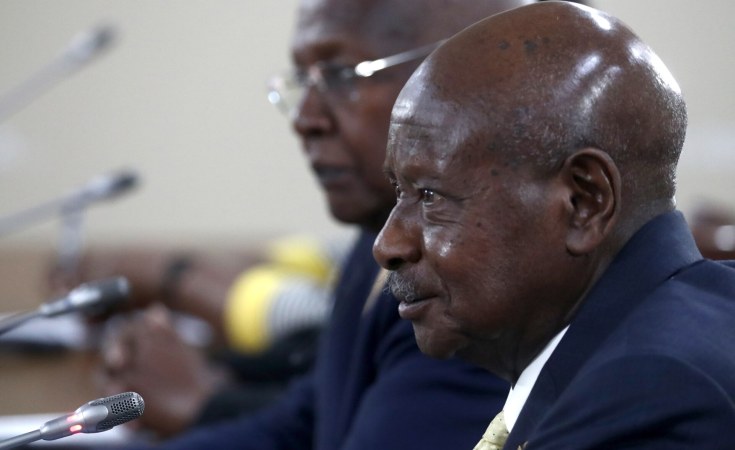President Museveni's anticipated speech on rising commodity prices offered no respite to millions of Ugandans who are on the brink of sliding into poverty due to the unprecedented hike in prices of essential goods that have wiped away their savings.
It was long and winding, prefaced with a historical perspective of where the country came from economically and some of the challenges that he said the country has successfully overcome (floating islands, Covid-19, army worms, cattle rustling etc).
ADVERTISEMENT
Yet when it came to the central focus of the speech, the runaway commodity prices, the president's 3,521-word speech did not have clear solutions.
"You are on your own," the speech seemed to suggest without the president explicitly telling Ugandans so.
ADVERTISEMENT
The general expectation of many people in the run up to the speech was that Museveni would outline measures government is taking to shield Ugandans from the rising prices especially of commodities like fuel, a key ingredient in production and movement of goods.
Specifically, some had hoped that Uganda would go the Kenya way where President Uhuru Kenyatta signed a supplementary bill last month allocating Kshs 34 billion (roughly Shs 1 trillion) to the oil companies to cushion the population against the rising fuel prices.
Instead, Museveni said that taking such a measure (subsidies) would be suicidal and would "drain our national reserves."
"If we subsidize or even just remove the taxes on imported commodities, the level of consumption will either remain the same, but this time each litre [of petrol] taking more dollars, or actually increase. The dollar drain will now increase per litre... ," the president said.
He said under the current circumstances, Ugandans have to be frugal as they wait for prices to go down.
Like him, he said Ugandans should eat cheaper but nutrient rich foods like millet and cassava and leave expensive products like wheat made bread, which he described as "unhealthy."
He said the real medicine to stem the price tide is by Ugandans producing more, something some say is not tenable under current circumstances due to increase in prices of vital inputs.
Museveni, as he has often stated, blamed the high commodity prices on two external factors: Disruption of chains of supply by Covid-19 and the Russia-Ukraine War.
The reactions to Museveni's speech, from the business community ranged from shock to disappointment.
Angela Amito, a vendor in Kyaliwajjala market who tuned into the speech said she was waiting to hear what the president's solutions to the high fuel prices.
Rising fuel prices have impacted on her under capitalized business in more ways than one.
"Right now I sell two tomatoes for Shs 1,000 because the cost of transport has shot up meaning that even the cost of a case of tomatoes is up," she said.
A single mother of three, Amito, with hands crossed, said her only resort now is prayer.
Kamada Musoke, who runs a retail shop in Namugongo, told Nile Post that he was shocked that the president appeared not to provide any way forward for people like him.
"The speech was out of touch with reality. I don't know if the president has advisors but for me I was shocked," Musoke said.
For two weeks, he has not been able to restock his shop with basic items like maize flour and sugar because the wholesale prices of the goods went up.
The shop is a shadow of its former, thriving self. Most of the shelves are empty and are just gathering dust.
"I need to be helped to survive otherwise we shall soon close my business," he said.


